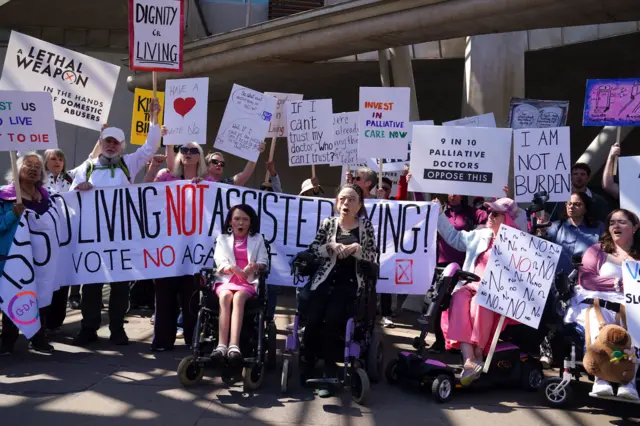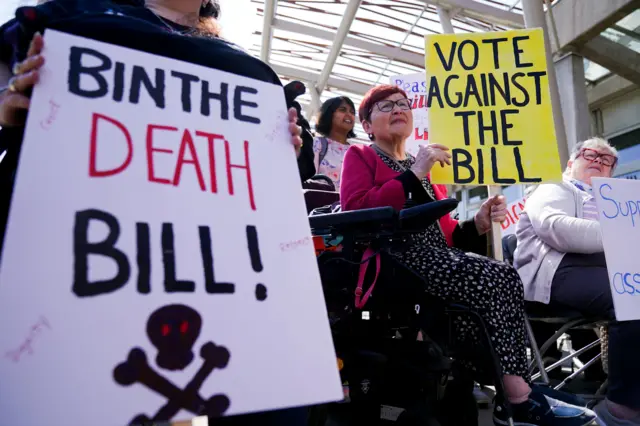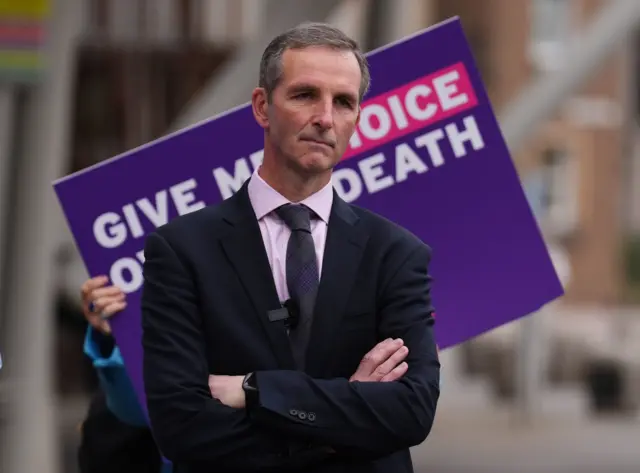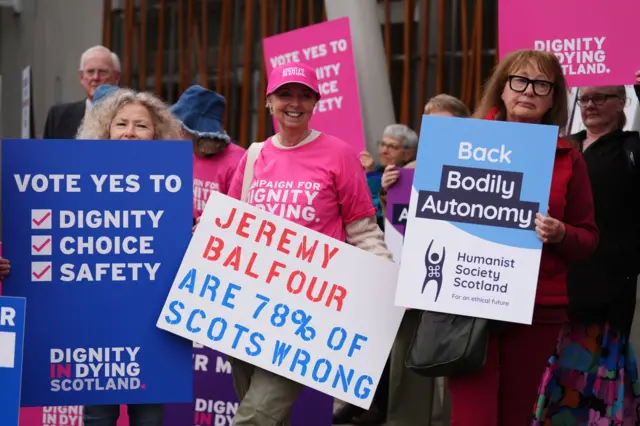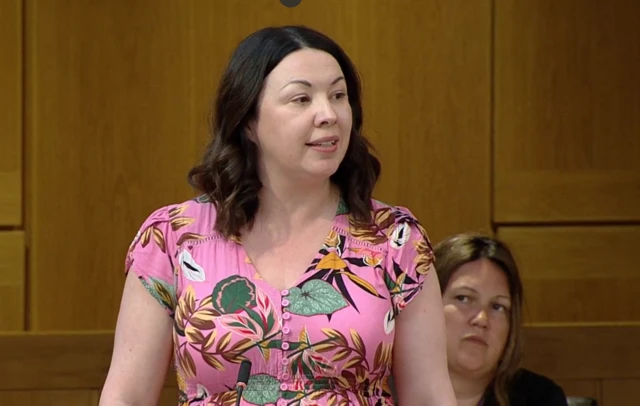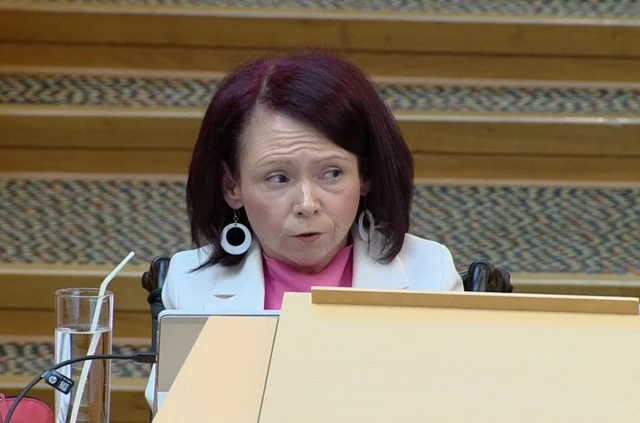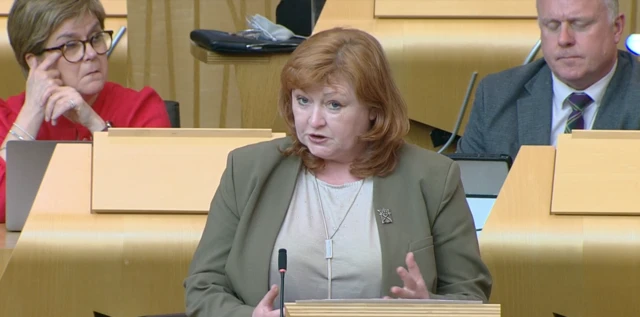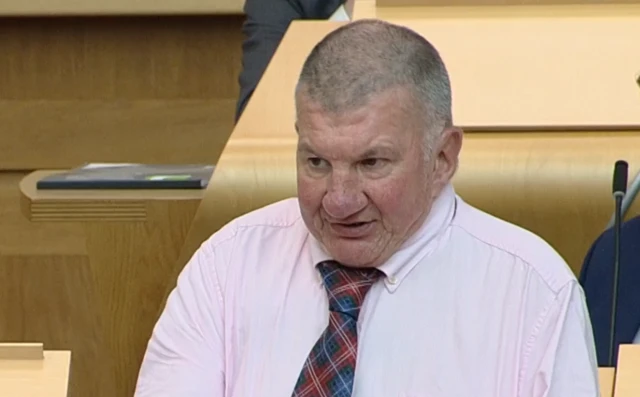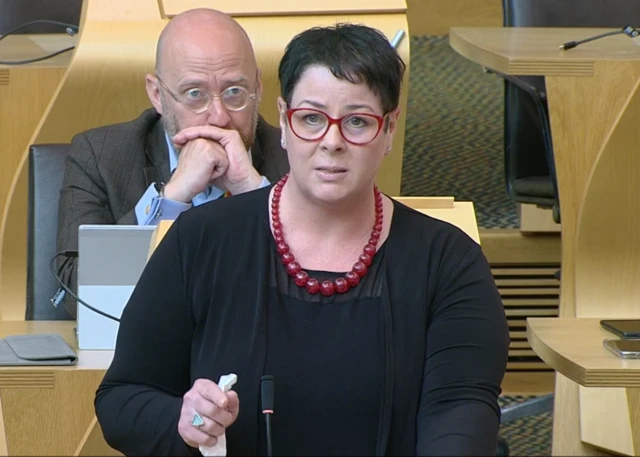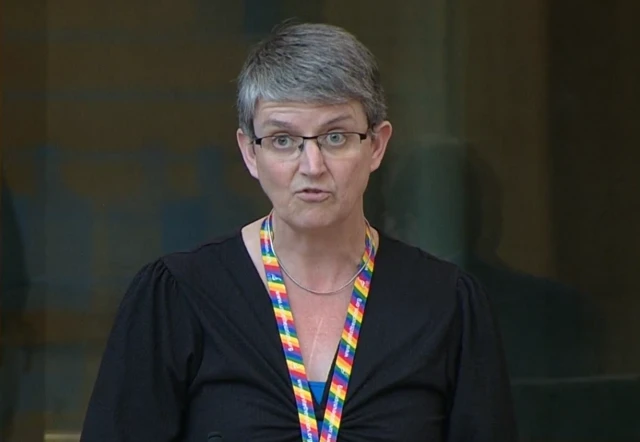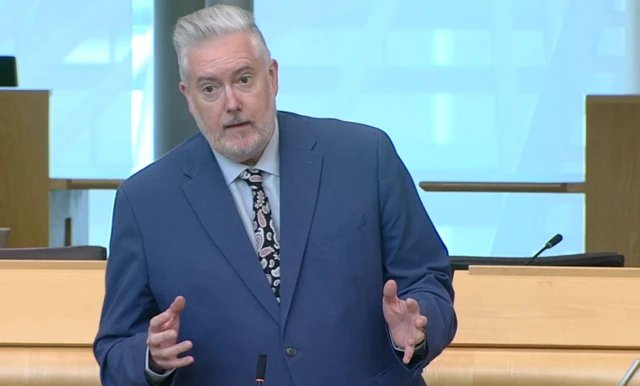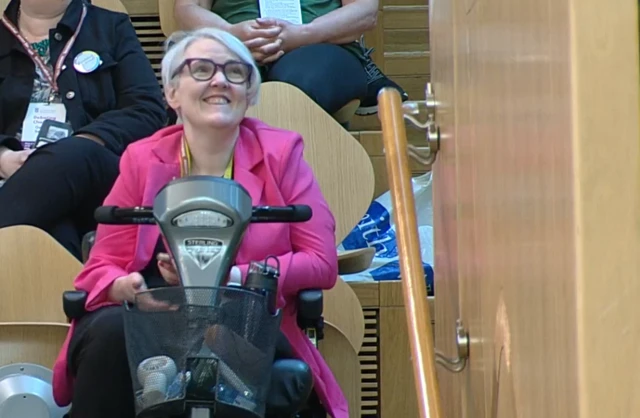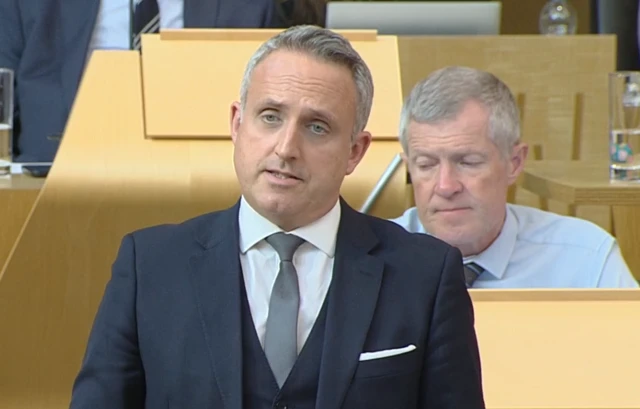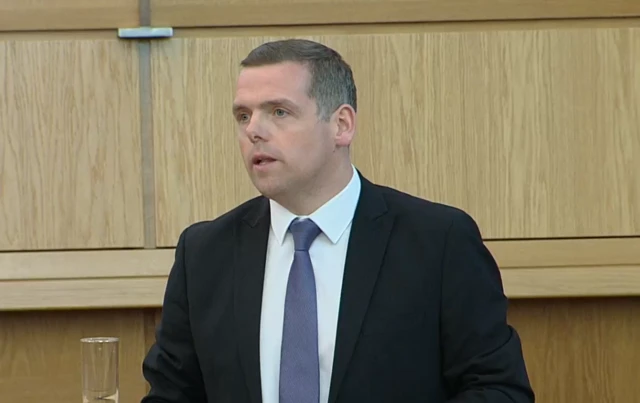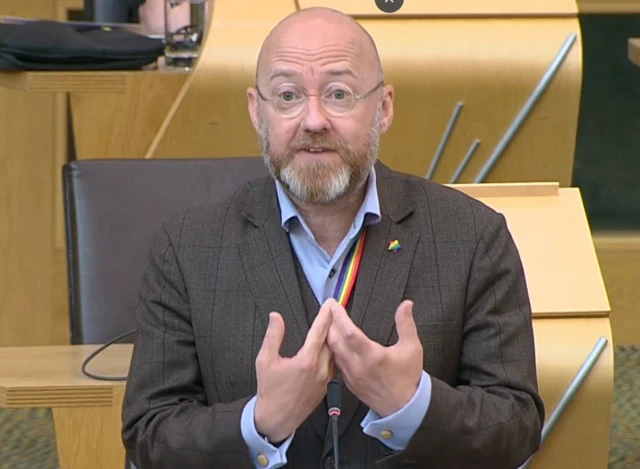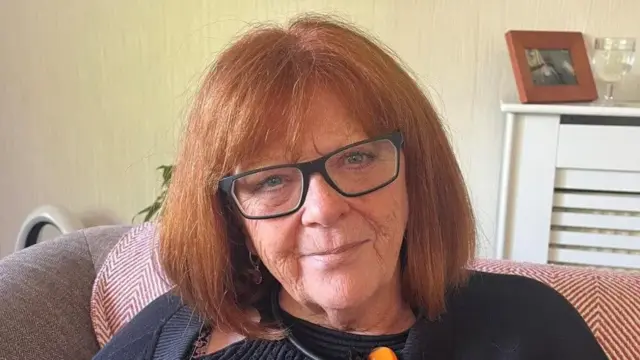Slater - this bill would give every person 'bodily autonomy'published at 18:04 BST 13 May
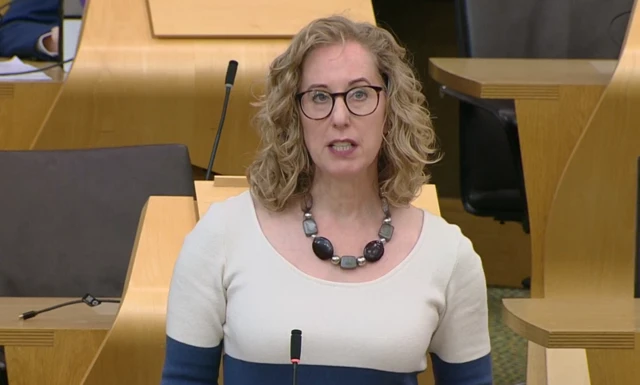 Image source, scottish parliament
Image source, scottish parliamentScottish Greens co-leader Lorna Slater says she believes the bill will provide safe and compassionate legislation.
Slater argues that the decision comes down to giving a person bodily autonomy. She says the decision to end life prematurely should not be a choice against excellent palliative care, and that the latter should be supported.
She says the bill differs from the proposal at Westminster, particularly with regards to the life expectancy time limitation in each bill.
The Green MSP says that as an autistic person she has concerns regarding how caveats around mental illness could be interpreted, but there are now “decades of data” available from other countries that could offer guidance and help protect people from coercion.
Blocking the legislation could lead to “months or years of suffering” for some people, she argues.

